ELCSxQueens: Defence and Security Career Workshop
Date
Thursday March 10, 20225:00 pm - 6:00 pm
Location
Online Workshop over Zoom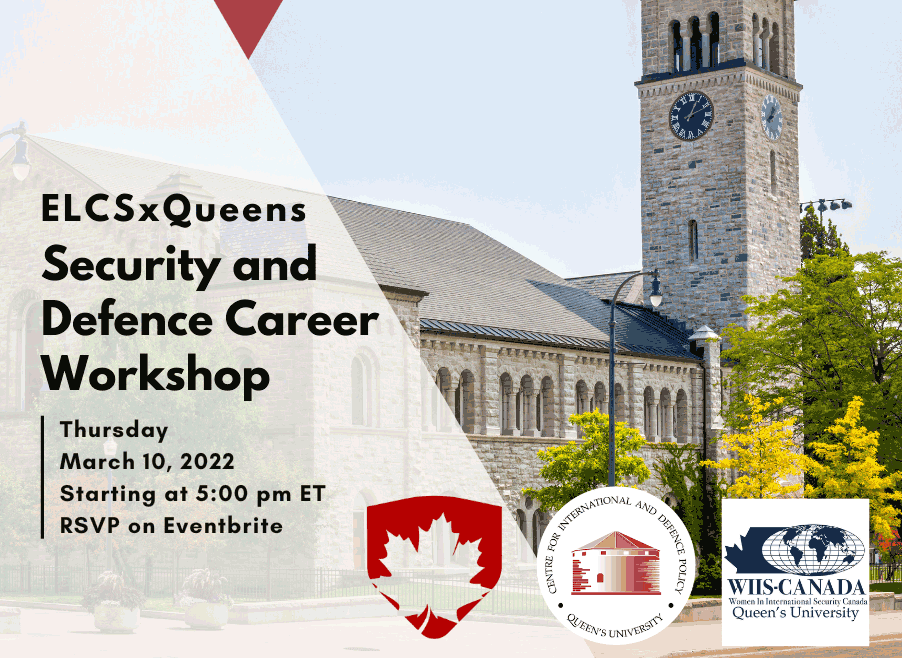
About this event
How do I break into Canada's the security and defence sector?
This workshop takes upper year and graduate students through the different sub-sectors within Canadian security and defence, while introducing career opportunities across the industry that are available to those with backgrounds in social science, especially international affairs, history, and political science. We'll provide practical advice and guidance for breaking into the field.
This event is co-hosted by Emerging Leaders in Canadian Security, the Centre for International and Defence Policy, and Women in International Security Canada - Queens University.
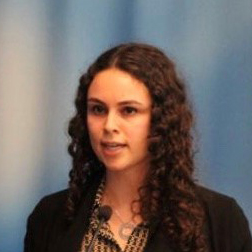 About the Moderator:
About the Moderator:
Rachel Babins currently works in incident response (cybersecurity) at a major Canadian telecommunications company, and previously held positions in threat intelligence. In 2021, she co-founded Emerging Leaders in Canadian Security (ELCS), an organization focused on resourcing, connecting, and unifying Canada's next generation of security practitioners; ultimately working to build a more diverse, skilled, and secure Canada.
NATO in 2022: Reconciling Allied Perspectives
Date
Thursday March 3, 202212:00 pm - 1:00 pm
Location
Online Webinar over ZoomCanada’s embrace of the need for western collective defence against the Soviet Union under American leadership lead Ottawa to play an active role in the initial discussions leading to the establishment of NATO and to make a significant military contribution to allied forces in Europe in the 1950s. In the decades that followed, Ottawa was beset with a series of domestic and external challenges to its place and contributions to the Alliance. Through all the controversy, Canada remained anxious to retain its place in the allied military structure and its seat at the table in allied councils. Nevertheless, by the late 1980s, it seemed that all Canada had to offer its allies was a military and politically insignificant bare presence in Germany. The end the of the Cold War would, ironically, led to a renaissance of Canada’s place and significance in NATO with deployments and combat operations in Balkans followed by the post 9/11 contributions to the allied forces in Afghanistan. After the Russian take-over of Crimea and in response to U.S. President Trump’s criticism of NATO, Canada leaned forward, not by increasing defence expenditures, but deploying forces to Latvia and contributing to training missions in Ukraine, in other words by supporting the Alliance in the very activities which have now brought a threatening Russian response. While noteworthy, these efforts have not been onerous until now as Canada’s “easy riding” approach to NATO is being tested again.
Italy and NATO in the 21st century: still a formidable partnership?
More than three decades since the crumbling of the Soviet bloc, NATO continues to be perceived by most of Italy’s political forces as an indispensable political and security bastion against the threats of regional instability and conflict. Although in recent years, economic stagnation and popular discontent have called into question outright support for European integration, Italy’s commitment to NATO has remained rock solid. Rather, an increasingly volatile international scenario and the slow development of the European Union’s CSDP have further strengthened the Alliance’s importance for Italian security. In the current strategic scenario, Rome’s concerns are focused on an arc of crisis stretching from the Mediterranean toward the Near East and the Gulf region and which might weld with instability in the Balkans, Ukraine, and the Caucasus. Persisting economic problems, the uncertain trajectory of the CSDP, and the growing assertiveness of revisionist powers, particularly Russia and Turkey, make far too evident for Italy the centrality of the Alliance and of its bilateral bond with the US. Nonetheless, while NATO remains the only multilateral security provider capable of effectively keeping in check the ambitions of other powers and preserving stability in the broader Mediterranean region, in the 21st century NATO’s ongoing relevance for Italy will depend on its ability of balancing its Eastern and Southern dimensions and of securing Rome a seat at the table when decisions affecting European security are taken.
Speakers:

Dr. Joel J. Sokolsky is a Professor of Political Science at the Royal Military College of Canada (RMC). He holds a PhD in Political Science from Harvard University and an MA from the School of Advanced International Studies (SAIS), Johns Hopkins University. From 2008 to 2013, he was Principal of RMC. He is a Senior Fellow at the Queen’s University Centre for International and Defence Policy and holds an appointment with the Queen’s Department of Political Studies. He is a Senior Analyst with Wikistrat.com. He has been the recipient two Fulbright Scholarships, two NATO Fellowships and a Killam Fellowship. Dr. Sokolsky’s most recent authored, co-authored and edited works include; Canada in NATO, 1949 -2019), “The International Fraternity of the Uniform: Implications for Civil–Military Relations”, Multilateral Unilateralism: Europe’s Second Chance…on America’s Terms, Canada’s NATO: Seventy Years of Commitment and Re-Commitment,” “Rejecting the Colorado Springs Playbook? NORAD in the Age of Trump” (2020) and North American Strategic Defense in the 21st Century: Security and Sovereignty in an Uncertain World.

Luca Ratti is Associate Professor of History of International Relations at the University of Rome 3 and Adjunct Professor of International Relations at the American University of Rome. He is currently visiting Professor in European Security at Carleton University.
His research and teaching interests lie U.S.-European relations, NATO’s evolution, European security and defense policies, and international relations theory. He is author of three monographs, two edited volumes and several journal articles and book chapters.
Disscussant:
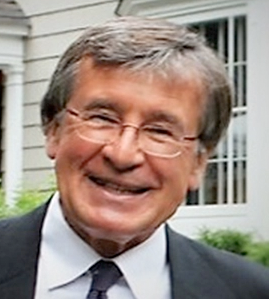
After receiving his Ph.D. in International Relations in 1978 from the Johns Hopkins School of Advanced International Studies, in Washington, D.C., David Haglund assumed teaching and research positions at the University of British Columbia. In 1983 he came to Queen's. From 1985 to 1995, and again from 1996 to 2002, he served as Director of the Queen’s Centre for International Relations (subsequently renamed the Queen’s Centre for International and Defence Policy). From 1992 to 1996 he served as Head of the Department of Political Studies, and as Acting Head for the 2015-16 academic year.
War, Law and Business
Date
Wednesday March 30, 20224:00 pm - 5:00 pm
Location
Online Webinar over ZoomWar, Law and Business:
A conversation about corporate responsibility in international humanitarian law and what the business and human rights dialogue is missing
In today’s globalised economy it is common for companies – their personnel, assets, supply chains and customers – to be present in areas of the world affected by armed conflict. No longer are these environments dominated by militaries and armed groups, but also private individuals with their own roles, rights and responsibilities. The business and human rights dialogue has recently shifted some of the focus to the increased risk of business-related human rights abuses in armed conflict, and the need for heighted action on the part of corporate actors in these contexts. However, little attention is paid to the unique and universally-accepted set of rules that apply in situations of armed conflict – international humanitarian law (IHL).
For the past four years, Australian Red Cross and RMIT University have worked together to help familiarise Australian businesses with IHL. Also known as the laws of war, IHL provides minimum standards of humanity that must be observed by anyone directly or inadvertently caught up in armed conflict. Companies that breach the rules of IHL – or help others to do so – aside from the harm to human life, may face reputational damage, financial loss and legal accountability against the company and its leaders. Taking the necessary steps towards understanding and implementing IHL will not only help businesses mitigate these risks but, more importantly, help to ensure corporations play their part in creating better humanitarian outcomes for communities experiencing war.
Join us for this conversation about corporate responsibility in conflict settings and learn how current and future leaders – in business, but also in other fields – can use IHL and the innovative guidance tools and educational experiences we have developed to lead in a more ethical and sustainable way.
Speakers
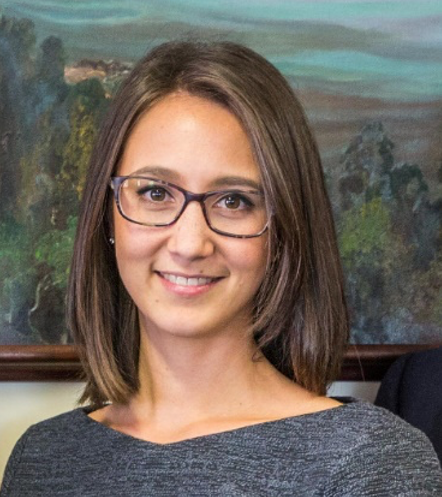
Fauve Kurnadi joined Australian Red Cross in 2015 and has held the position of Legal Adviser – International Humanitarian Law for the past five years. With a view to promoting respect and understanding for the laws of war, Fauve has primary responsibility for the Program’s engagement with corporate actors, as well as academic circles and university students, within Australia. Fauve has also worked as a researcher and practitioner in the fields of Aboriginal truth and reconciliation and immigration and refugee law. She has volunteered as a Humanitarian Observer in the Australian Red Cross Immigration Detention Monitoring Program.
Fauve holds a Bachelor of Laws and a Bachelor of Arts from the University of Queensland and a Master of Public and International Law from the University of Melbourne. Fauve was admitted as a Legal Practitioner to the Supreme Court of Queensland in 2013. She was recently named a nominee in Pro Bono Australia’s 2022 Impact 25 Awards for her work in ensuring corporates play their part in creating better humanitarian outcomes for communities experiencing war.
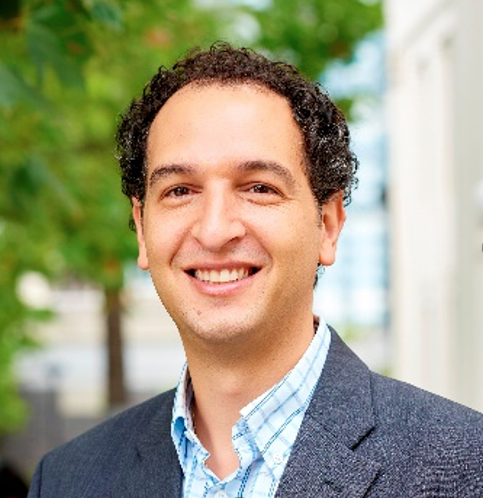
Dr Jonathan Kolieb is Senior Lecturer in Law at RMIT University, where he is the Peace and Conflict Theme Lead at RMIT’s Business and Human Rights Centre. Jonathan’s research and teaching interests focus on global governance issues, including projects on the legal protections of children in armed conflict and the human rights obligations of transnational corporations, in particular in conflict-affected areas. Jonathan has served as legal consultant to the Special Representative of the United Nations’ Secretary-General for Children and Armed Conflict and regularly advises community-based organisations on international legal matters. He has held positions at the Embassy of Australia in Washington DC, and with NGOs focusing on human rights and international affairs. Jonathan’s work has been published in academic journals such as Australian Journal of Human Rights and American University International Law Review, and in mainstream outlets such as Foreign Policy and The Washington Post.
Jonathan holds degrees from the University of Melbourne (PhD; B.A./LL.B.), Monash University (B.A.-Hons.) and the University of California-Berkeley (LL.M; M.A.). He is recipient of a Rotary World Peace Fellowship, and been a visiting fellow at the Australian National and George Washington Universities.
Co-Moderator

Sophie Rondeau is currently the Senior Legal Advisor, International Humanitarian Law, at the Canadian Red Cross. She holds an LL.B (UdeM), an LL.M (international law, UQAM) and an LL.D (UNIGE/ ULaval). Dr. Rondeau is a member of the Quebec Bar, a lecturer at Université Sherbrooke, and an associate member of the Canadian observatory on humanitarian crisis and action (OOCAH). Over the years, she worked in the field of international humanitarian law, international justice and international human rights in organizations such as the Diakonia IHL Centre, Rights and Democracy, the Canadian Red Cross, the Jean-Pictet Competition and the ICTY..
Relevant links:
Australian Red Cross – “Business and International Humanitarian Law Hub”
RMIT’s Business and Human Rights Centre

Great Power Competition in the Western Indian Ocean Region and what the U.S. needs to do to preserve its position of relative dominance
Date
Wednesday March 9, 202212:00 pm - 1:00 pm
Location
Online Webinar over ZoomGreat Power Competition in the Western Indian Ocean Region,
and what the U.S. needs to do to preserve its position of relative dominance
LTC(P) Chad M. Pillai
U.S. Army Visiting Defence Fellow
The United States faces compound security dilemmas globally, causing a scenario where the U.S. may have more rivals that it can manage, as Hal Brands recently wrote. As the U.S. prioritizes its national security and defense strategies, it seeks to implement its delayed “Asia Pivot” to compete against China. However, while the U.S. is pivoting towards the Pacific, China moves westward into the Western Indian Ocean region to secure the vital sea lines of communications (SLOCs) to its critical energy, mineral, and agriculture resources. The potential military dominance of the Chinese in the Western Indian Ocean could result in China coercing U.S. allies in Europe and Far East Asia by disrupting the free flow of commerce (energy and trade goods). Such a scenario threatens the U.S. position as the defender of the global commons in an area vital to the global economy. The lecture will offer ideas on how the U.S. can retain its dominant position while accounting for the increased number of threats to its interests.
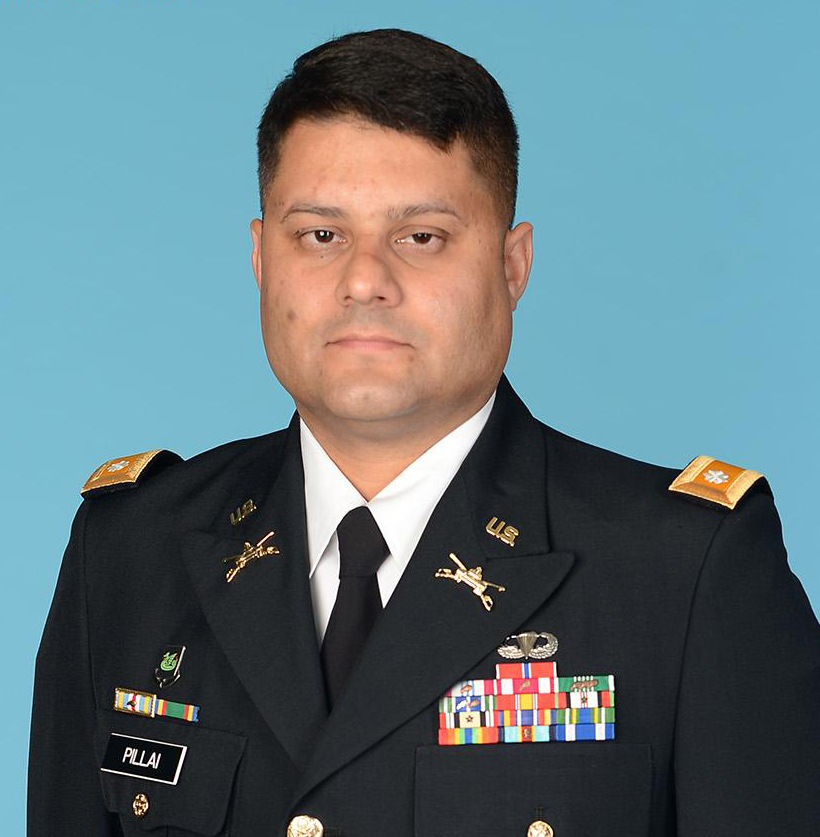
Lieutenant Colonel Chad M. Pillai is an Army Strategist serving as the U.S. Visiting Defence Fellow (VDF) at CIDP. Previously, he served as the Deputy Director, Commander’s Action Group (CAG), and as a Joint Strategic Planner in the Strategy, Plans, and Policy Directorate (J5) at U.S. Central Command (CENTCOM) from 2018-2021. From 2014-2018, he served as the Deputy Director for Strategy, Plans, and Policy (J5) and Command Strategist for U.S. Special Operations Command – Central (SOCCENT), a Joint Sub-Unified Special Operations Command to CENTCOM and U.S. Special Operations Command (SOCOM). (more on LTC(P) Chad M. Pillai)
Podcast - Defence Deconstructed
War and Change: Perspective on the Human Dimension of Conflict
Date
Wednesday January 19, 202212:00 pm - 1:30 pm
Location
Queen's University via ZoomThe Centre for International and Defence Policy is one of the collaborating partners for the Human Dimensions in Foreign Policy, Military Studies, and Security Studies Series at the McGill-Queen’s University Press. Six presenters will highlight their contributions to three books from this series:
Claire Cookson-Hills and Rob Engen for Why We Fight;
Vicki Woodside-Duggins and Colin Farrelly for Transhumanizing War;
Vanessa Brown for Culture and the Soldier.
The scope of topics covered by the presenters will offer a compelling insight into current research of global security in the twenty-first century and the human dimensions of war.
RAS/NSA Colloquium 2021 - What’s Next? Managing Traditional and New Threats through Alliances, Partnerships and Institutions
Start Date
Thursday December 9, 2021End Date
Friday December 10, 2021Time
9:00 am - 5:00 pmLocation
Onlinethis event was be broadcast simultaneously in English and French.
2021 was a year of transition: some countries entertained the idea of a post-pandemic turn, while others have not. Throughout the pandemic crisis, however, traditional security challenges have persisted, albeit in unique ways. This colloquium will grapple with this challenging transition: on the one hand, through the uneven impact of the pandemic and vaccine diplomacy, and on the other hand, with an international diplomacy that must deal with an increasingly complex security environment and tenser relations among the great powers. It will address these topics through two public roundtables and a public keynote lecture on Day 1 and a closed-door roundtable on Day 2.
Conference Agenda:
DAY 1 – From 9am to 5pm
9 :00-9 :15 – Welcoming remarks
9 :15-11 :15 - Roundtable 1 - The Clash of Regional and International Organizations
This panel explores the impact of COVID-19 on regional and international organizations. While the logical response to a global issue such as COVID-19 would be to rely on multilateral efforts, the pandemic has crowded out multilateral and even regional initiatives in favour of nationalistic sentiments and self-interested responses by many states. In the post-pandemic period, states may thus invest more in self-sufficiency and in redefining their strategic priorities, including health security. The growing gap between national, regional, and multilateral responses to COVID-19 calls into question the development of global governance and regional integration, as well as the future of international organizations and their capacity for economic and political cooperation.
11:15AM - 11:30AM - Coffee Break
11:30AM - 12:30PM – Keynote Speech
12:30PM - 1:30PM – Lunch
1:30PM - 3:30PM - Roundtable 2 - Cooperating with Rivals in a Post-Pandemic World
The decline of American leadership is said to be directly responsible for national governments' efforts to go it alone in the face of the COVID-19 pandemic. While this trend was especially salient under the Trump administration, it has not entirely disappeared with the arrival of President Joe Biden. According to Robert Kaplan, China and Russia have redefined great power competition and the classical/Western meaning of war, making the response of the West, i.e., the United States, all the more important. Arguing that the pandemic has created a global consciousness, Kaplan recommends that the West respond by strengthening its alliances. With this in mind, the second panel zeroes in on the following question: how do we cooperate with our rivals in a post-pandemic context? While the pandemic has intensified many rivalries, the fact remains that cooperation, even with rivals, is necessary to address the challenges and threats posed by the return of great power competition and the threat posed by revisionist states such as Iran.
3:30PM - 4:00PM – Student Panel – Best Paper Competition
4:00PM – 5:00PM – Networking Activity
For more information visit ras-nsa.ca


The “I” in ethics: learnings from a first-time experience in the field
Date
Wednesday November 3, 202112:00 pm - 10:00 pm
Location
Zoom WebinarThe way ethics are considered when it comes to qualitative research has changed a lot over time. Certainly, social scientists have long been concerned with moral and social considerations pertaining their research. Up until recently, however, and particularly in political science, ethics remained for most researchers more a sideline concern than a matter of discussion. It is no longer really the case, with a growing attention to ethical considerations and calls for reflexivity from researchers. Reflecting on her doctoral research, Dr. Johanna Masse will analyze her own ethical journey and how it influenced her study on women’s activism during violent conflicts.
 Johanna Masse
Johanna Masse
CDSN Post-Doctoral Research Fellow, Centre for International and Defence Policy
Johanna Masse is a Post-Doctoral Research Fellow at the Center for International and Defence Policy. She holds a PhD in Political Science from Laval University (Québec) and a MA in International Relations from Paris I University – La Sorbonne (France). As part of her doctoral research, Johanna aimed to get a better understanding of women’s forms of activism in conflict situations, with a special focus on Northern Ireland’s Troubles (1968-1998) and Palestine (1967-2000). As such, she focused on the influence of gendered stereotypes when it comes to women’s activism during political conflicts.
A remarkable mobilization: The Canadian Veteran Effort in Support of the Afghan Evacuation
Date
Wednesday October 6, 202112:00 pm - 1:00 pm
Location
Zoom Webinar
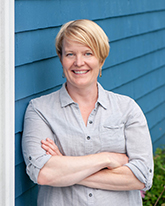 LCol (Ret'd) Eleanor Taylor
LCol (Ret'd) Eleanor Taylor
Eleanor Taylor is a native of Antigonish Nova Scotia who completed a 25 year career as a regular force infantry officer and now runs Eleanor Taylor Consulting, a company that supports the development teams and leaders who thrive in adversity. While in uniform, she had many rewarding experiences at home and abroad. Chief among them was her deployment to Kandahar Afghanistan during which she led operations with soldiers from the Canadian, US, and Afghan armies and her work with Special Operations Forces Command developing interagency partnerships.
Eleanor has been asked to share her experiences on Women in Combat and the integration of women into non-traditional trades with academics and Armed Forces of other nations who are studying the issues. In 2013, she was named by the Women's Executive Network (WXN) as one of Canada's Top 100 Women. In 2019 she was invested into the Order of Military Merit Order of Military Merit which recognizes exceptional service. Eleanor evolved from a shy high-school kid to a successful combat leader in a male dominated profession and believes that equally significant transformations are accessible to everyone with the right training and mentorship.
Eleanor lives in Halifax, Nova Scotia with her children, Isaac and Beth. She is passionate about projects in support of veterans’ wellness and women in leadership.
